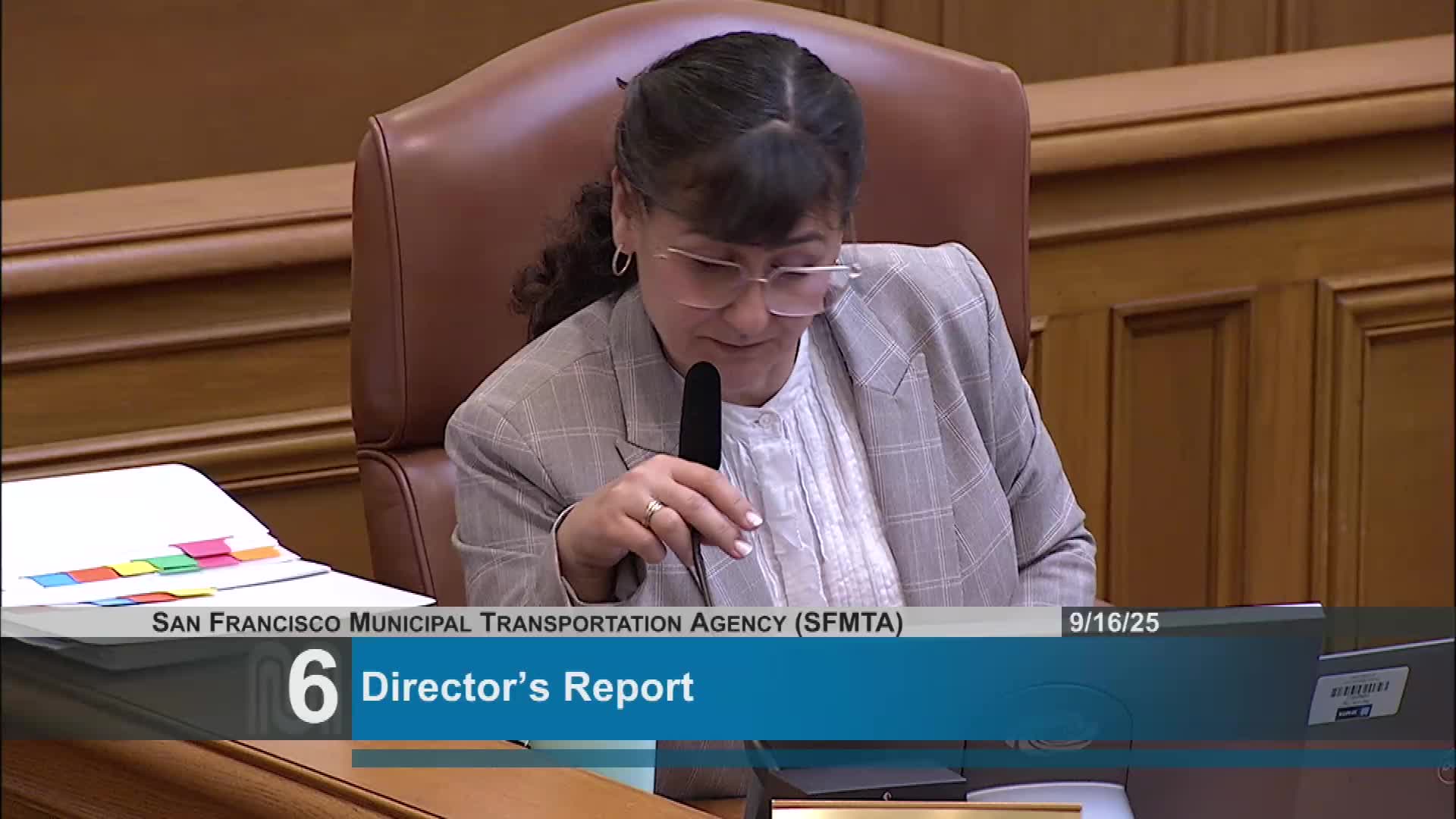Article not found
This article is no longer available. But don't worry—we've gathered other articles that discuss the same topic.
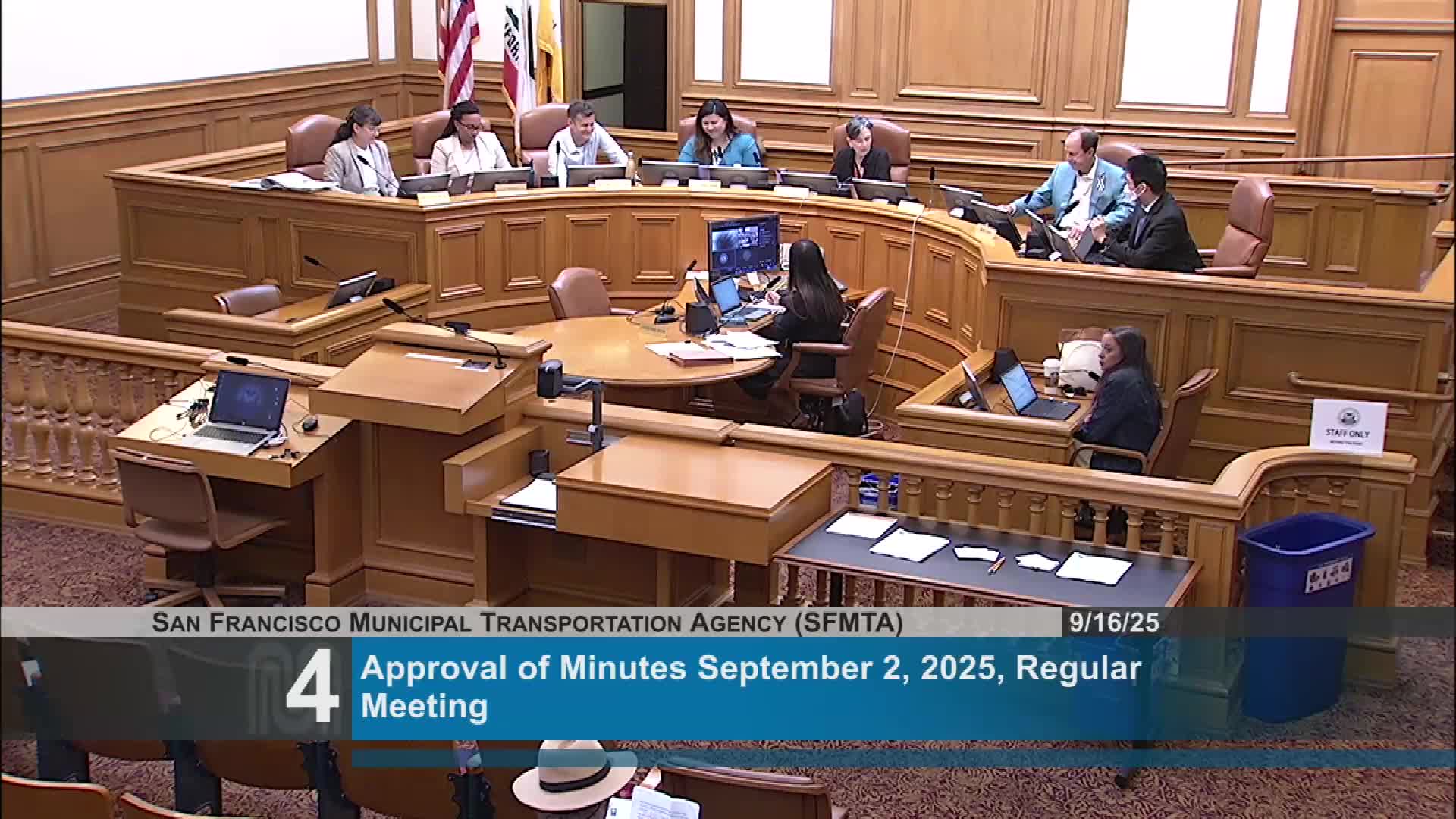
Board roll calls: minutes, consent calendar, Larkin quick‑build and closed session non‑disclosure
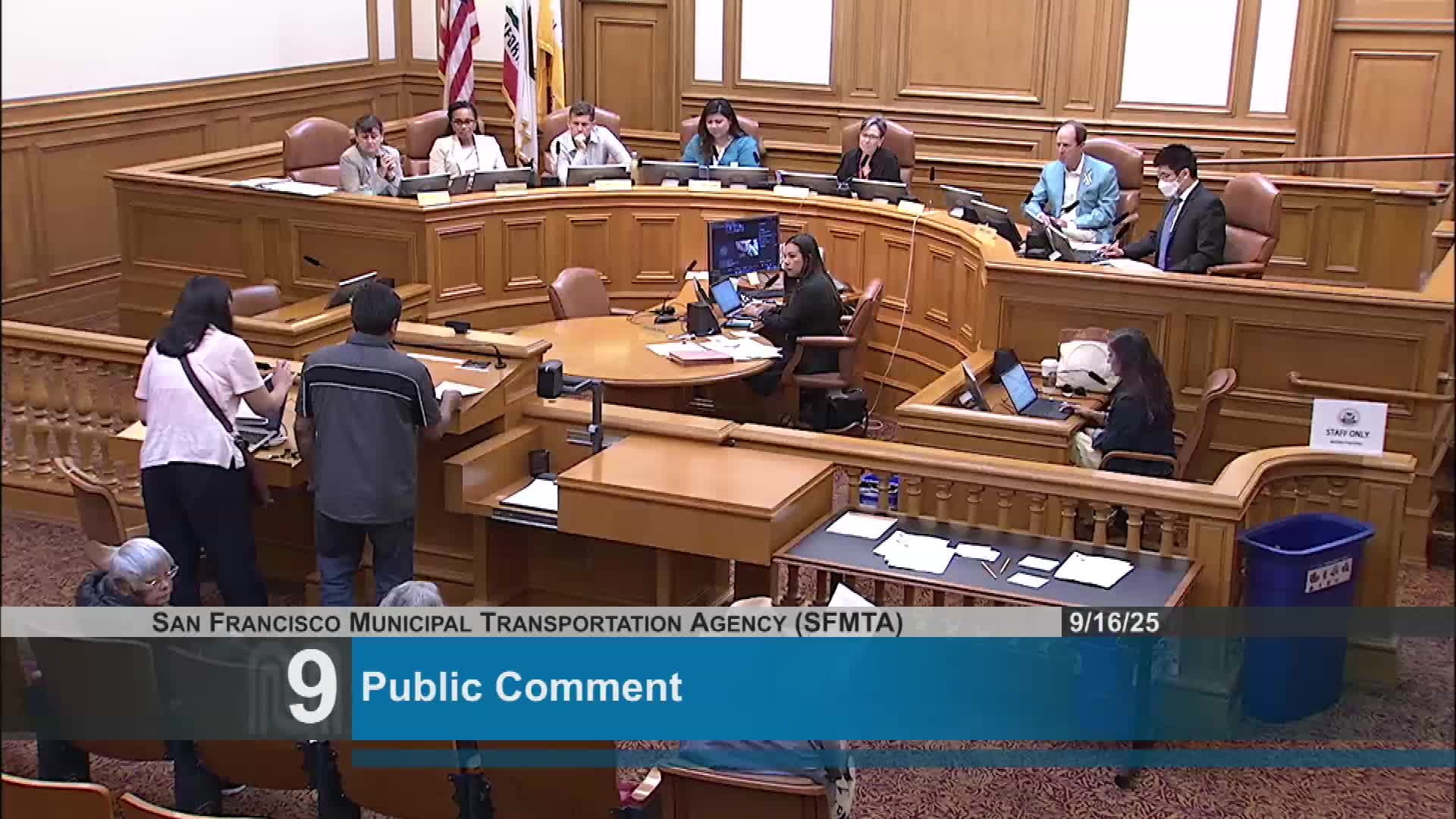
Residents and advocates urge SFMTA to amend RV permit policy, warn towing will increase street homelessness
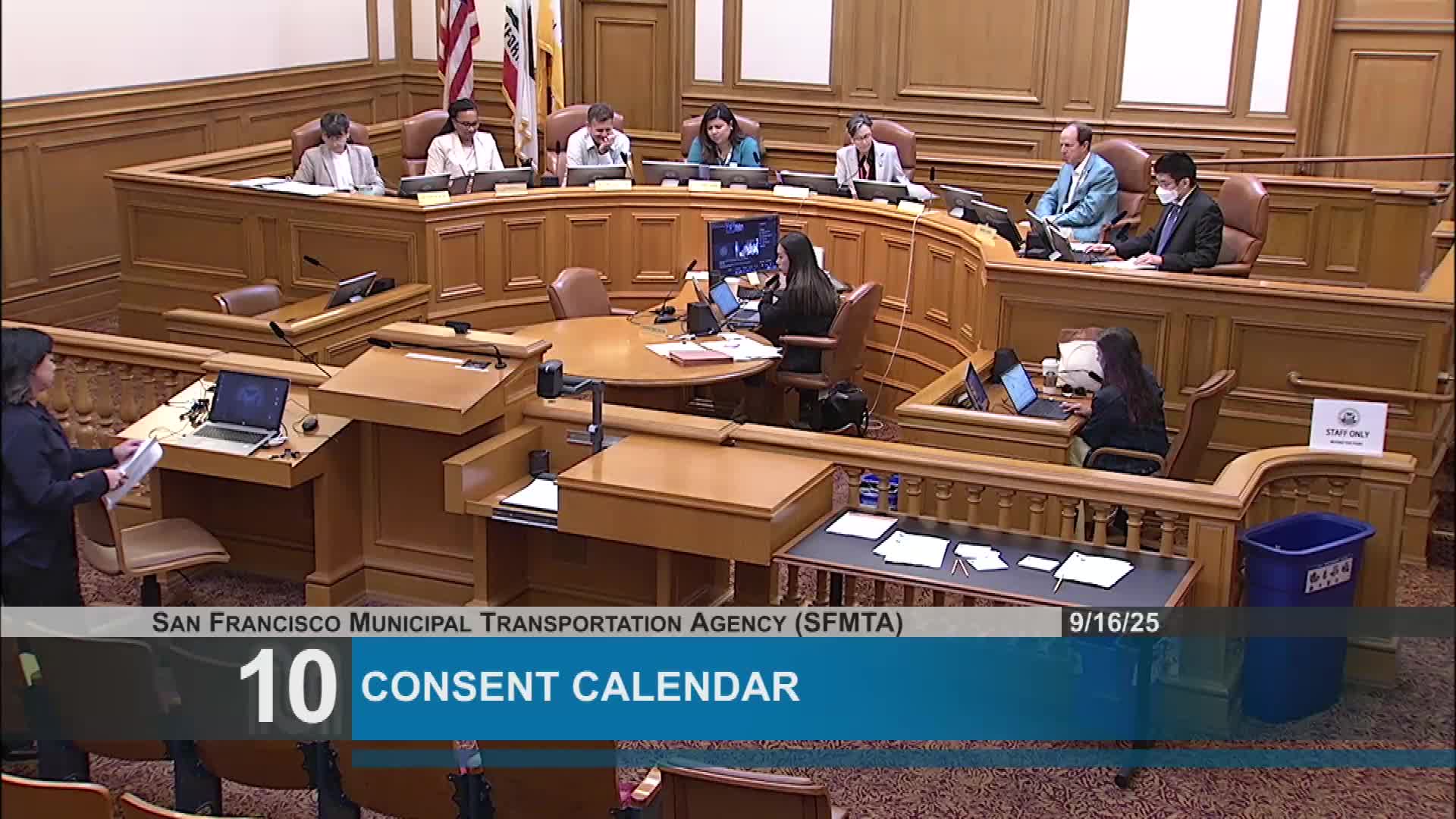
Board approves Larkin Street quick‑build to cut collisions in Tenderloin
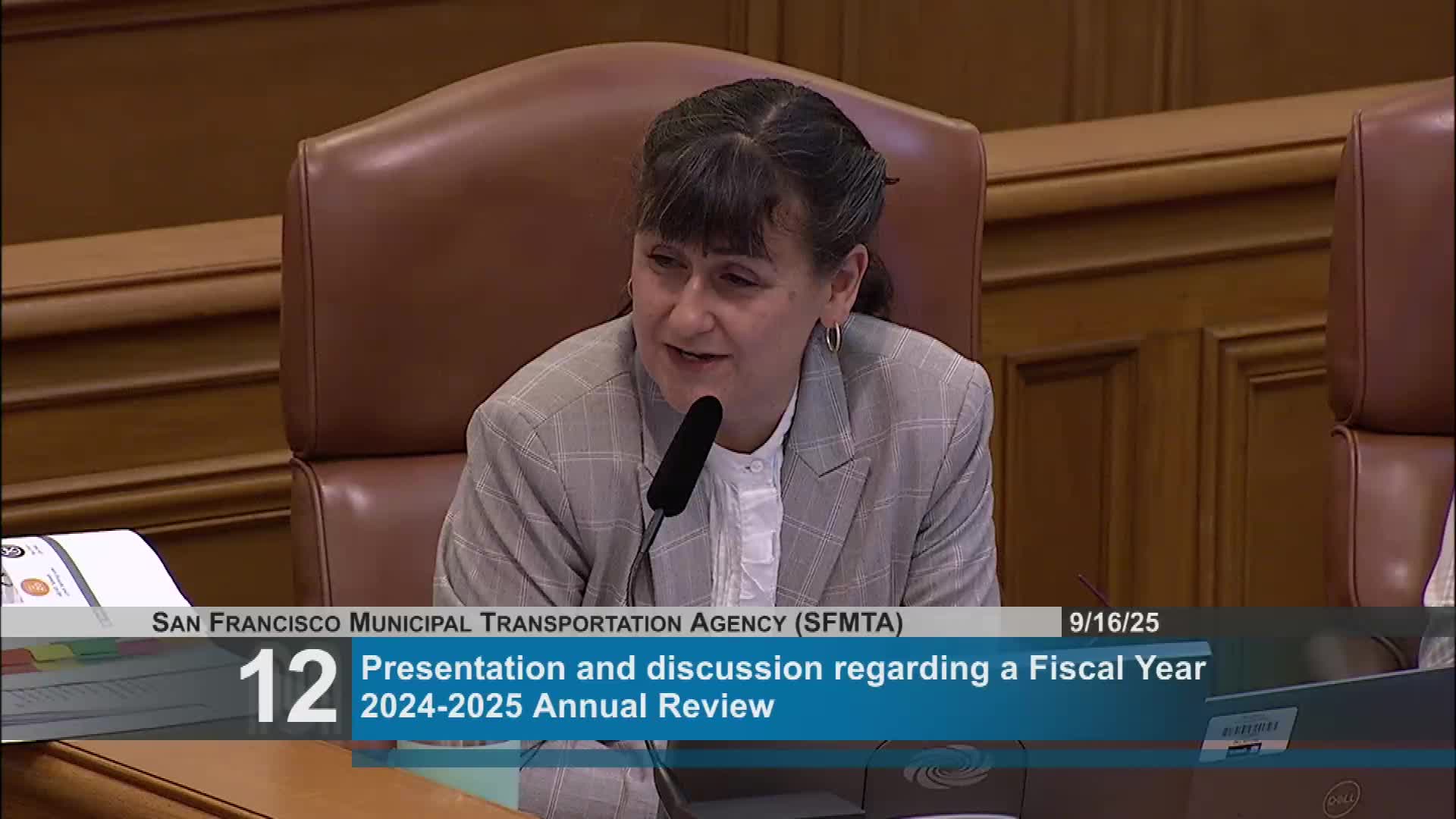
SFMTA reports FY 2024–25 ended with modest surplus as fare compliance and parking revenues rose
